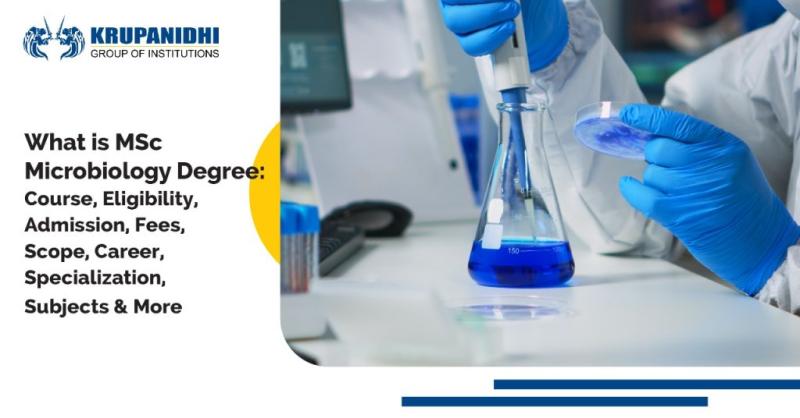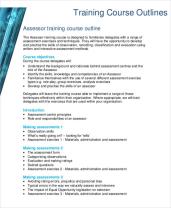What is a microbiology course?
A microbiology course is an academic program or series of courses that provides a comprehensive study of microorganisms and their interactions with living organisms and the environment. Microbiology is a branch of biology that focuses on the study of microscopic organisms, including bacteria, viruses, fungi, protozoa, and algae. Microbiology courses are offered at various educational levels, from undergraduate to postgraduate, and cover a wide range of topics within the field.
Here is an overview of what a typical microbiology course might include:
Introduction to Microbiology: This introductory course provides a foundational understanding of microbiology, covering basic concepts such as the history of microbiology, microbial cell structure, classification of microorganisms, and their role in nature.
Bacteriology: Bacteriology is a core component of microbiology courses. Students learn about the morphology, physiology, genetics, and ecology of bacteria. Topics may include bacterial growth, metabolism, and the role of bacteria in human health and disease.
Virology: In virology courses, students study viruses, their structure, replication mechanisms, and their impact on host organisms. The course may cover viral pathogenesis, antiviral strategies, and the development of vaccines.
Mycology: Mycology courses focus on the study of fungi, including yeasts, molds, and mushrooms. Students explore fungal morphology, life cycles, ecology, and the medical and industrial relevance of fungi.
Parasitology: Parasitology courses delve into the study of parasites, including protozoa, helminths, and arthropods. Students learn about the life cycles, host-parasite interactions, and the impact of parasitic infections on human health.
Immunology: Immunology is a crucial aspect of microbiology, covering the study of the immune system. Students learn about the components of the immune system, immune responses to infections, and the development of immunity.
Microbial Genetics: Microbial genetics courses explore the genetic principles and mechanisms in microorganisms. Topics may include gene regulation, mutation, recombination, and horizontal gene transfer.
Medical Microbiology: This specialized course focuses on microorganisms that cause human diseases. Students study the identification, diagnosis, and treatment of infectious diseases, as well as epidemiology and public health aspects.
Applied Microbiology: Applied microbiology courses cover the practical applications of microbiology in various fields, including industry, agriculture, and environmental science. Students may learn about biotechnology, industrial fermentation, and microbial bioremediation.
Environmental Microbiology: This course explores the role of microorganisms in natural environments, including their contributions to nutrient cycling, pollution control, and ecosystem dynamics.
Microbial Ecology: Microbial ecology courses focus on the interactions between microorganisms and their environments. Students study microbial communities, symbiotic relationships, and the ecological impact of microorganisms.
Microbiology courses can be part of undergraduate degree programs (e.g., Bachelor of Science in Microbiology) or more specialized programs at the graduate level (e.g., Master's or Ph.D. in Microbiology). The content and depth of microbiology courses may vary based on the educational level and the specific focus of the program or institution offering the courses.
1. Topics and Subjects in a Typical Microbiology Course:
A typical microbiology course covers a range of fundamental topics, including:
- Microbial Diversity: Introduction to different types of microorganisms, their classification, and identification methods.
- Microbial Structure and Function: Exploring the cell structure, physiology, and metabolic pathways of microorganisms.
- Microbial Genetics: Understanding the genetic makeup of microbes, DNA replication, and gene expression.
- Microbial Growth and Control: Studying factors affecting microbial growth, methods for cultivation and enumeration, and strategies for controlling microbial populations.
- Microbial Ecology: Examining the interactions between microorganisms and their environment, including their roles in ecosystems and biogeochemical cycles.
- Microbial Pathogenesis: Understanding the mechanisms by which microorganisms cause disease in humans, animals, and plants.
- Immunity: Exploring the immune system's response to microbial infections and its role in protecting against diseases.
- Clinical Microbiology: Applying microbiological knowledge to diagnose, treat, and prevent infectious diseases.
- Antimicrobial Chemotherapy: Studying different types of antimicrobial drugs, their mechanisms of action, and strategies for combating antimicrobial resistance.
- Food Microbiology: Understanding the role of microbes in food production, spoilage, safety, and preservation.
- Industrial Microbiology: Exploring the applications of microbes in various industries like biofuel production, bioremediation, and waste treatment.
2. Contribution to Understanding Microorganisms:
A microbiology course provides a comprehensive understanding of microorganisms by:
- Introducing the diverse world of microbes: This broadens the student's perspective beyond familiar bacteria and viruses to include fungi, protozoa, and algae.
- Explaining their structure and function: Understanding the intricate cellular machinery of microbes helps explain their growth, metabolism, and interactions with the environment.
- Delving into their genetics: Studying how microbes inherit and express their genes provides insights into their diversity, evolution, and potential for genetic manipulation.
- Exploring their roles in various environments: This knowledge is crucial for understanding ecological processes, food production, disease transmission, and industrial applications.
- Investigating their pathogenic mechanisms: Understanding how microbes cause disease is vital for developing preventive strategies, diagnostic tests, and effective treatments.
- Highlighting the role of immunity: Learning about the immune system's response to microbes helps appreciate its importance in maintaining health and protecting against infections.
- Providing practical applications: Microbiological techniques are essential for diagnosis, treatment, and prevention of infectious diseases, ensuring food safety, and developing various industrial products.
3. Practical Applications in a Microbiology Course Curriculum:
Many microbiology courses incorporate practical applications through laboratory exercises and research projects. These activities may include:
- Microbial culture techniques: Learning how to grow and isolate different types of microorganisms.
- Microscopy techniques: Observing microbial morphology and characteristics using various microscopes.
- Biochemical tests: Performing tests to identify and differentiate different microorganisms.
- Antimicrobial susceptibility testing: Determining the effectiveness of different antibiotics against specific bacteria.
- Food safety testing: Analyzing food samples for the presence of harmful bacteria.
- Bioremediation experiments: Studying the role of microbes in cleaning up contaminated environments.
- Genetic manipulation techniques: Learning how to manipulate microbial DNA for research purposes.
- Case studies and simulations: Applying theoretical knowledge to real-world scenarios involving infectious diseases or industrial applications.
These practical experiences provide students with valuable hands-on experience, enhance their understanding of microbiological concepts, and prepare them for future careers in various fields.












